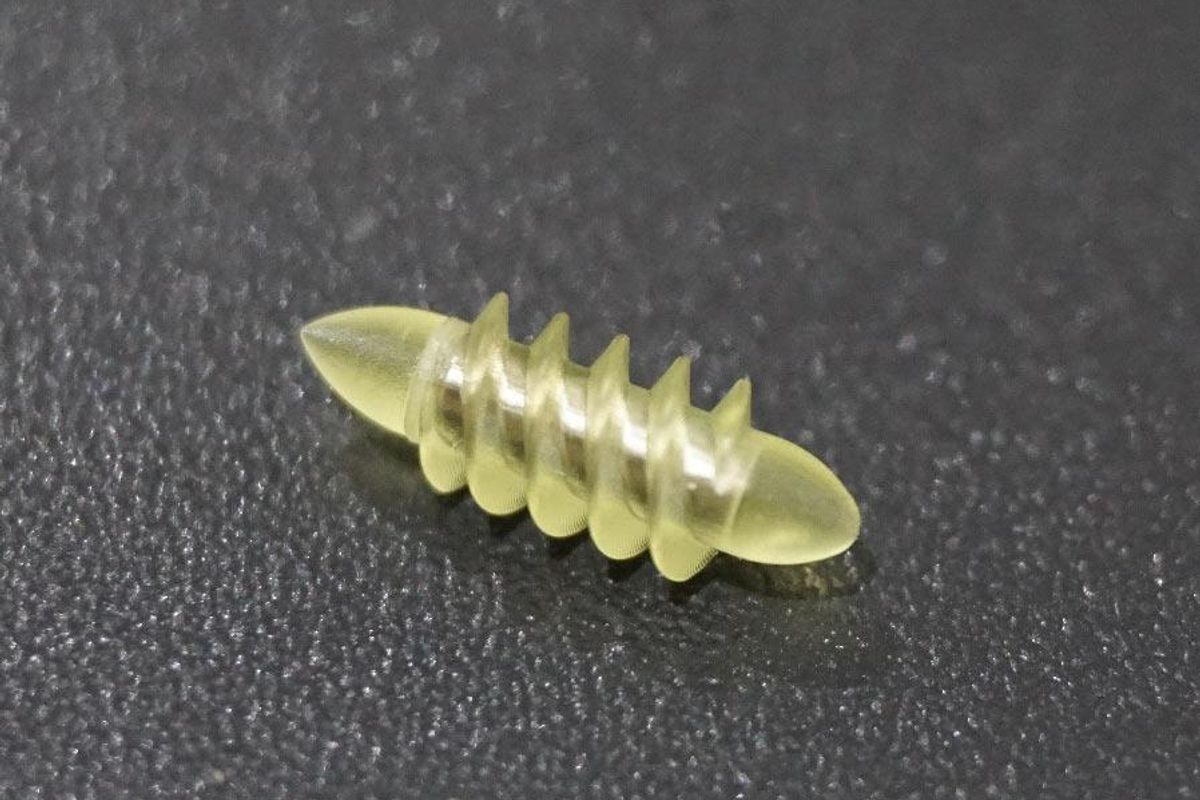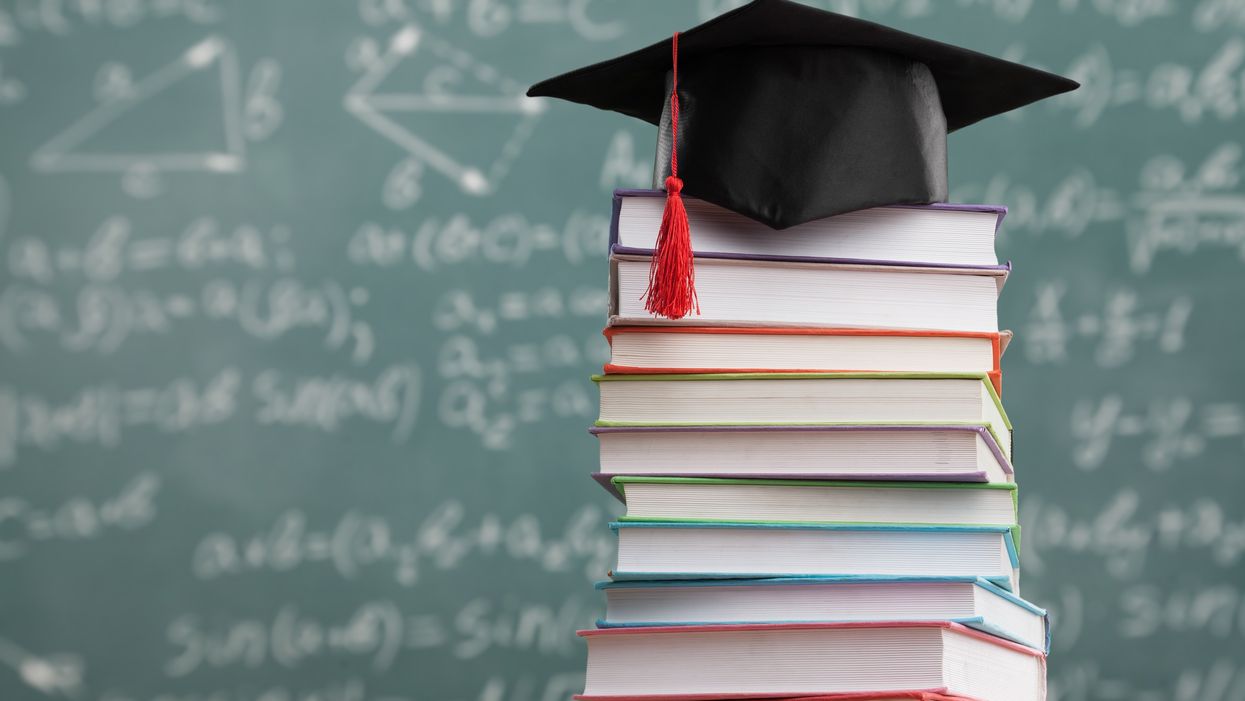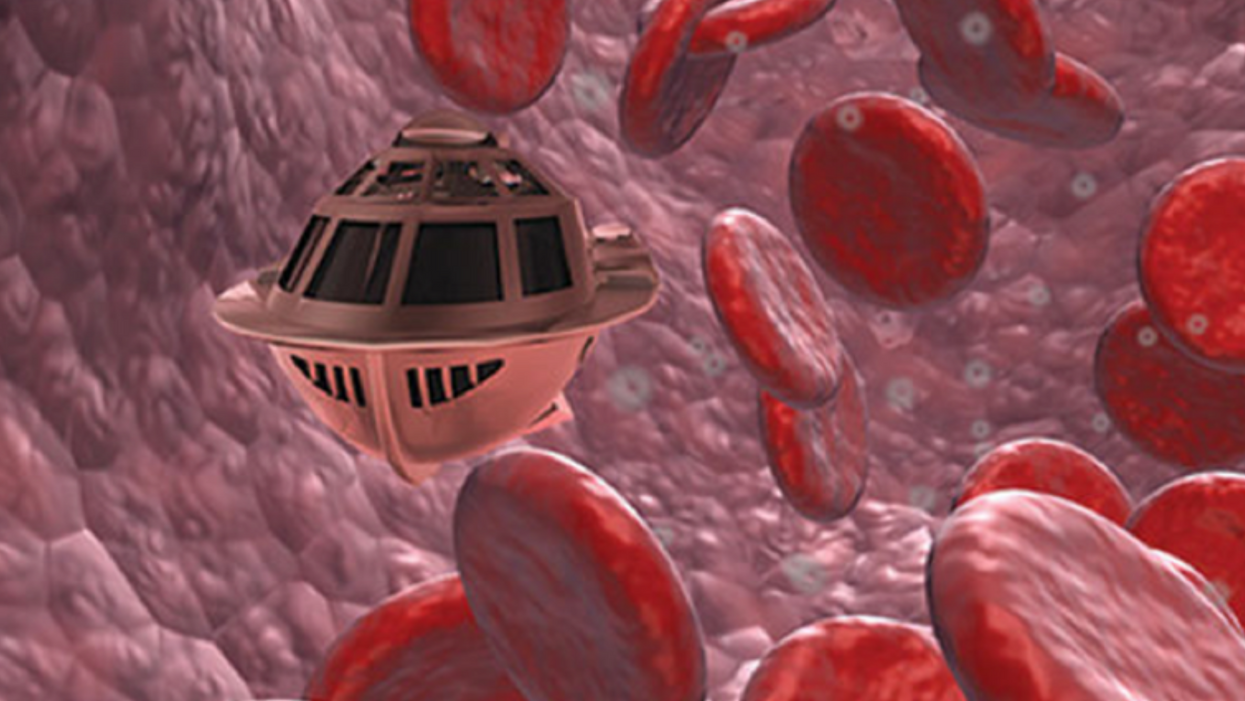Who Qualifies as an “Expert” And How Can We Decide Who Is Trustworthy?

Discerning a real expert from a charlatan is crucial during the COVID-19 pandemic and beyond.
This article is part of the magazine, "The Future of Science In America: The Election Issue," co-published by LeapsMag, the Aspen Institute Science & Society Program, and GOOD.
Expertise is a slippery concept. Who has it, who claims it, and who attributes or yields it to whom is a culturally specific, sociological process. During the COVID-19 pandemic, we have witnessed a remarkable emergence of legitimate and not-so-legitimate scientists publicly claiming or being attributed to have academic expertise in precisely my field: infectious disease epidemiology. From any vantage point, it is clear that charlatans abound out there, garnering TV coverage and hundreds of thousands of Twitter followers based on loud opinions despite flimsy credentials. What is more interesting as an insider is the gradient of expertise beyond these obvious fakers.
A person's expertise is not a fixed attribute; it is a hierarchical trait defined relative to others. Despite my protestations, I am the go-to expert on every aspect of the pandemic to my family. To a reporter, I might do my best to answer a question about the immune response to SARS-CoV-2, noting that I'm not an immunologist. Among other academic scientists, my expertise is more well-defined as a subfield of epidemiology, and within that as a particular area within infectious disease epidemiology. There's a fractal quality to it; as you zoom in on a particular subject, a differentiation of expertise emerges among scientists who, from farther out, appear to be interchangeable.
We all have our scientific domain and are less knowledgeable outside it, of course, and we are often asked to comment on a broad range of topics. But many scientists without a track record in the field have become favorites among university administrators, senior faculty in unrelated fields, policymakers, and science journalists, using institutional prestige or social connections to promote themselves. This phenomenon leads to a distorted representation of science—and of academic scientists—in the public realm.
Trustworthy experts will direct you to others in their field who know more about particular topics, and will tend to be honest about what is and what isn't "in their lane."
Predictably, white male voices have been disproportionately amplified, and men are certainly over-represented in the category of those who use their connections to inappropriately claim expertise. Generally speaking, we are missing women, racial minorities, and global perspectives. This is not only important because it misrepresents who scientists are and reinforces outdated stereotypes that place white men in the Global North at the top of a credibility hierarchy. It also matters because it can promote bad science, and it passes over scientists who can lend nuance to the scientific discourse and give global perspectives on this quintessentially global crisis.
Also at work, in my opinion, are two biases within academia: the conflation of institutional prestige with individual expertise, and the bizarre hierarchy among scientists that attributes greater credibility to those in quantitative fields like physics. Regardless of mathematical expertise or institutional affiliation, lack of experience working with epidemiological data can lead to over-confidence in the deceptively simple mathematical models that we use to understand epidemics, as well as the inappropriate use of uncertain data to inform them. Prominent and vocal scientists from different quantitative fields have misapplied the methods of infectious disease epidemiology during the COVID-19 pandemic so far, creating enormous confusion among policymakers and the public. Early forecasts that predicted the epidemic would be over by now, for example, led to a sense that epidemiological models were all unreliable.
Meanwhile, legitimate scientific uncertainties and differences of opinion, as well as fundamentally different epidemic dynamics arising in diverse global contexts and in different demographic groups, appear in the press as an indistinguishable part of this general chaos. This leads many people to question whether the field has anything worthwhile to contribute, and muddies the facts about COVID-19 policies for reducing transmission that most experts agree on, like wearing masks and avoiding large indoor gatherings.
So how do we distinguish an expert from a charlatan? I believe a willingness to say "I don't know" and to openly describe uncertainties, nuances, and limitations of science are all good signs. Thoughtful engagement with questions and new ideas is also an indication of expertise, as opposed to arrogant bluster or a bullish insistence on a particular policy strategy regardless of context (which is almost always an attempt to hide a lack of depth of understanding). Trustworthy experts will direct you to others in their field who know more about particular topics, and will tend to be honest about what is and what isn't "in their lane." For example, some expertise is quite specific to a given subfield: epidemiologists who study non-infectious conditions or nutrition, for example, use different methods from those of infectious disease experts, because they generally don't need to account for the exponential growth that is inherent to a contagion process.
Academic scientists have a specific, technical contribution to make in containing the COVID-19 pandemic and in communicating research findings as they emerge. But the liminal space between scientists and the public is subject to the same undercurrents of sexism, racism, and opportunism that society and the academy have always suffered from. Although none of the proxies for expertise described above are fool-proof, they are at least indicative of integrity and humility—two traits the world is in dire need of at this moment in history.
[Editor's Note: To read other articles in this special magazine issue, visit the beautifully designed e-reader version.]
When graduating college this month, many North American engineering students will take a special pledge, with a history dating back to 1925.
This spring, just like any other year, thousands of young North American engineers will graduate from their respective colleges ready to start erecting buildings, assembling machinery, and programming software, among other things. But before they take on these complex and important tasks, many of them will recite a special vow stating their ethical obligations to society, not unlike the physicians who take their Hippocratic Oath, affirming their ethos toward the patients they would treat. At the end of the ceremony, the engineers receive an iron ring, as a reminder of their promise to the millions of people their work will serve.
The ceremony isn’t just another graduation formality. As a profession, engineering has ethical weight. Moreover, engineering mistakes can be even more deadly than medical ones. A doctor’s error may cost a patient their life. But an engineering blunder may bring down a plane or crumble a building, resulting in many more fatalities. When larger projects—such as fracking, deep-sea mining or building nuclear reactors—malfunction and backfire, they can cause global disasters, afflicting millions. A vow that reminds an engineer that their work directly affects humankind and their planet is no less important than a medical oath that summons one to do no harm.
The tradition of taking an engineering oath began over a century ago in Canada. In 1922, Herbert E.T. Haultain, professor of mining engineering at the University of Toronto, presented the idea at the annual meeting of the Engineering Institute of Canada. The seven past presidents of that body were in attendance, heard Haultain’s speech and accepted his suggestion to form a committee to create an honor oath. Later, they formed the nonprofit Corporation of the Seven Wardens, which would oversee the ritual. Next year, in 1923, with the encouragement of the Seven Wardens, Haultain wrote to poet and writer Rudyard Kipling, asking him to develop a professional oath for engineers. “We are a tribe—a very important tribe within the community,” Haultain said in the letter, “but we are lacking in tribal spirit, or perhaps I should say, in manifestation of tribal spirit. Also, we are inarticulate. Can you help us?”
While Kipling is most famous now for “The Jungle Book” and perhaps his poem “Gunga Din,” he had also written a short story about engineers, “The Bridge Builders.” His poem “The Sons of Martha” can be read as a celebration of engineers:
It is their care in all the ages to take the buffet and cushion the shock.
It is their care that the gear engages; it is their care that the switches lock.
It is their care that the wheels run truly; it is their care to embark and entrain,
Tally, transport, and deliver duly the Sons of Mary by land and main.
Kipling accepted the ask and wrote the Ritual of the Calling of an Engineer, which he sent to Haultain a month later. In his response to Haultain, he stated that he preferred the word “Obligation” to “Oath.” He wrote the Obligation using Old English lettering and the old-fashioned capitalization. Kipling’s Obligation binds engineers upon their “Honor and Cold Iron” to not “suffer or pass, or be privy to the passing of, Bad Workmanship or Faulty Material,” and pardon is asked “in the presence of my betters and my equals in my Calling” for the engineer’s “assured failures and derelictions.” The hope is that when one is tempted to shoddy work by weakness or weariness, the memory of the Obligation “and the company before whom it was entered into, may return to me to aid, comfort, and restrain.”
Using the Obligation, The Seven Wardens created an induction ceremony, which seeks to unify the profession and recognize engineering’s ethics, including responsibility to the public and the need to make the best decisions possible. The induction ceremony included recitation of Kipling’s “Obligation” and incorporated an anvil, a hammer, an iron chain, and an iron ring. The inductee engineers sat inside an area marked off by the iron chain, with their more senior colleagues outside that area. At the start of the ritual, the leader beat out S-S-T in Morse code with the hammer and anvil—the letters standing for Steel, Stone, and Time. A more experienced and previously obligated engineer placed the ring on the small finger of the inductee engineer’s working hand. As per Kipling, the ring’s rough, faceted texture symbolized “the young engineer’s mind” and the difficulties engineers face in mastering their discipline.
A persistent myth purports that the original iron rings were made from the beams or bolts of the Quebec Bridge that failed twice during construction.
The first induction ceremony took place on April 25, 1925, in Montreal to obligate two of the Seven Wardens, along with four graduates from the University of Toronto class of 1893. On May 1 of that year, 14 more engineers were obligated at the University of Toronto. From that time to today most Canadian professional engineers have gone through that same ritual in their various camps, called Kipling camps—local chapters associated with various Canadian universities.
Henry Petroski, Duke University’s professor of civil engineering and history, notes in his book, “Forgive Design: Understanding Failure,” that Kipling’s poem “Sons of Martha” is often read as part of the ritual. However, sometimes inductees read Kipling’s “Hymn of Breaking Strain,” instead, which graphically depicts disastrous outcomes of engineering mistakes. The first stanza of that poem says:
The careful text-books measure
(Let all who build beware!)
The load, the shock, the pressure
Material can bear.
So, when the buckled girder
Lets down the grinding span,
'The blame of loss, or murder,
Is laid upon the man.
Not on the Stuff—the Man!
As if to strengthen the importance of these concepts, a persistent myth purports that the original iron rings were made from the beams or bolts of the Quebec Bridge that failed twice during construction. The bridge spans the St. Lawrence River upriver from Quebec City, and at the time of its construction was the world’s longest at 1,800 feet. Due to engineering errors and poor oversight, the bridge’s own weight exceeded its carrying capacity. Moreover, engineers downplayed danger when bridge beams began to warp under stress, saying that they were probably warped before they were installed. On August 29, 1907, the bridge collapsed, killing 75 of 86 workers. A second collapse occurred in 1916 when lifting equipment failed, and thirteen more workers died.
The ring myth, however, couldn’t be true. The original iron rings couldn’t have come from the failed bridge since it was made of steel, not wrought iron. Today the rings are made from stainless steel because iron deteriorates and stains engineers’ finger black.

On August 14, 2018, Morandi Bridge over Polcevera River in Genoa, Italy, collapsed from structural failure, killing 43 people.
Adobe Stock
The Seven Wardens decided to restrict the ritual to engineers trained in Canada. They copyrighted the obligation oath in Canada and the United States in 1935. Although the ritual is not a requirement for professional licensing, just like the Hippocratic Oath is not part of medical licensing, it remains a long-standing tradition.
The American Obligation of the Engineer has its own creation story, albeit a very different one. The American Order of the Engineer (OOE) was initiated in 1970, during the era of the anti-war protests, Apollo missions and the first Earth Day. On May 4, 1970, the National Guard shot into a crowd of protesters at Kent State University, killing four people. The two authors of the American obligation—Cleveland State University’s (CSU) engineering professor John Janssen and his wife Susan—reflected these historical events in the oath they wrote. Their version of the oath binds engineers to “practice integrity and fair dealing.” It also notes that their “skill carries with it the obligation to serve humanity by making the best use of the Earth’s precious wealth.” As Petroski explains in his book, “campus antiwar protestors around the country tended to view engineers as complicit in weapons proliferation [which] prompted some [CSU] engineering student leaders to look for a means of asserting some more positive values.”
Kip A. Wedel, associate professor of history and politics at Bethel College, wrote in his book, “The Obligation: A History of the Order of the Engineer,” that the ceremony was not a direct response to the Kent State shootings—it was already scheduled when the shootings happened. Yet, engineering students found the ceremony a positive action they could take in contrast to the overall turmoil. The first American ritual took place on June 4, 1970, at CSU. In total, 170 students, faculty members, and practicing engineers took the obligation. This established CSU as the first Link of the Order, as the OOE designates its local chapters. For their first ceremony, the CSU students fabricated smooth, unfaceted rings from stainless steel pipe. Later they were replaced by factory-made rings. According to Paula Ostaff, OOE’s Executive Director, about 20,000 eligible students and alumni obligate themselves yearly.
Societies hope that every engineer is imbued with a strong ethical sense and that their pledges are never far from mind. For some, the rings they wear serve a daily reminder that every paper they sign off on is touched by a physical reminder of their commitment.
These ethical and responsible engineering practices are especially salient today, when one in three American bridges needs repair or replacement, some have already collapsed, and engineers are working on projects related to the bipartisan infrastructure bill President Biden signed into law in 2021. Canada has committed $33 billion to its Investing in Canada Infrastructure Program. At the heart of these grand projects are many thousands of professional engineers, collectively working millions of hours. The professional vows they took aim to assure that the homes, bridges and airplanes they build will work as expected.
A movie still from the 1966 film "Fantastic Voyage"
In the 1966 movie "Fantastic Voyage," actress Raquel Welch and her submarine were shrunk to the size of a cell in order to eliminate a blood clot in a scientist's brain. Now, 55 years later, the scenario is becoming closer to reality.
California-based startup Bionaut Labs has developed a nanobot about the size of a grain of rice that's designed to transport medication to the exact location in the body where it's needed. If you think about it, the conventional way to deliver medicine makes little sense: A painkiller affects the entire body instead of just the arm that's hurting, and chemotherapy is flushed through all the veins instead of precisely targeting the tumor.
"Chemotherapy is delivered systemically," Bionaut-founder and CEO Michael Shpigelmacher says. "Often only a small percentage arrives at the location where it is actually needed."
But what if it was possible to send a tiny robot through the body to attack a tumor or deliver a drug at exactly the right location?
Several startups and academic institutes worldwide are working to develop such a solution but Bionaut Labs seems the furthest along in advancing its invention. "You can think of the Bionaut as a tiny screw that moves through the veins as if steered by an invisible screwdriver until it arrives at the tumor," Shpigelmacher explains. Via Zoom, he shares the screen of an X-ray machine in his Culver City lab to demonstrate how the half-transparent, yellowish device winds its way along the spine in the body. The nanobot contains a tiny but powerful magnet. The "invisible screwdriver" is an external magnetic field that rotates that magnet inside the device and gets it to move and change directions.
The current model has a diameter of less than a millimeter. Shpigelmacher's engineers could build the miniature vehicle even smaller but the current size has the advantage of being big enough to see with bare eyes. It can also deliver more medicine than a tinier version. In the Zoom demonstration, the micorobot is injected into the spine, not unlike an epidural, and pulled along the spine through an outside magnet until the Bionaut reaches the brainstem. Depending which organ it needs to reach, it could be inserted elsewhere, for instance through a catheter.
"The hope is that we can develop a vehicle to transport medication deep into the body," says Max Planck scientist Tian Qiu.
Imagine moving a screw through a steak with a magnet — that's essentially how the device works. But of course, the Bionaut is considerably different from an ordinary screw: "At the right location, we give a magnetic signal, and it unloads its medicine package," Shpigelmacher says.
To start, Bionaut Labs wants to use its device to treat Parkinson's disease and brain stem gliomas, a type of cancer that largely affects children and teenagers. About 300 to 400 young people a year are diagnosed with this type of tumor. Radiation and brain surgery risk damaging sensitive brain tissue, and chemotherapy often doesn't work. Most children with these tumors live less than 18 months. A nanobot delivering targeted chemotherapy could be a gamechanger. "These patients really don't have any other hope," Shpigelmacher says.
Of course, the main challenge of the developing such a device is guaranteeing that it's safe. Because tissue is so sensitive, any mistake could risk disastrous results. In recent years, Bionaut has tested its technology in dozens of healthy sheep and pigs with no major adverse effects. Sheep make a good stand-in for humans because their brains and spines are similar to ours.

The Bionaut device is about the size of a grain of rice.
Bionaut Labs
"As the Bionaut moves through brain tissue, it creates a transient track that heals within a few weeks," Shpigelmacher says. The company is hoping to be the first to test a nanobot in humans. In December 2022, it announced that a recent round of funding drew $43.2 million, for a total of 63.2 million, enabling more research and, if all goes smoothly, human clinical trials by early next year.
Once the technique has been perfected, further applications could include addressing other kinds of brain disorders that are considered incurable now, such as Alzheimer's or Huntington's disease. "Microrobots could serve as a bridgehead, opening the gateway to the brain and facilitating precise access of deep brain structure – either to deliver medication, take cell samples or stimulate specific brain regions," Shpigelmacher says.
Robot-assisted hybrid surgery with artificial intelligence is already used in state-of-the-art surgery centers, and many medical experts believe that nanorobotics will be the instrument of the future. In 2016, three scientists were awarded the Nobel Prize in Chemistry for their development of "the world's smallest machines," nano "elevators" and minuscule motors. Since then, the scientific experiments have progressed to the point where applicable devices are moving closer to actually being implemented.
Bionaut's technology was initially developed by a research team lead by Peer Fischer, head of the independent Micro Nano and Molecular Systems Lab at the Max Planck Institute for Intelligent Systems in Stuttgart, Germany. Fischer is considered a pioneer in the research of nano systems, which he began at Harvard University more than a decade ago. He and his team are advising Bionaut Labs and have licensed their technology to the company.
"The hope is that we can develop a vehicle to transport medication deep into the body," says Max Planck scientist Tian Qiu, who leads the cooperation with Bionaut Labs. He agrees with Shpigelmacher that the Bionaut's size is perfect for transporting medication loads and is researching potential applications for even smaller nanorobots, especially in the eye, where the tissue is extremely sensitive. "Nanorobots can sneak through very fine tissue without causing damage."
In "Fantastic Voyage," Raquel Welch's adventures inside the body of a dissident scientist let her swim through his veins into his brain, but her shrunken miniature submarine is attacked by antibodies; she has to flee through the nerves into the scientist's eye where she escapes into freedom on a tear drop. In reality, the exit in the lab is much more mundane. The Bionaut simply leaves the body through the same port where it entered. But apart from the dramatization, the "Fantastic Voyage" was almost prophetic, or, as Shpigelmacher says, "Science fiction becomes science reality."
This article was first published by Leaps.org on April 12, 2021.

